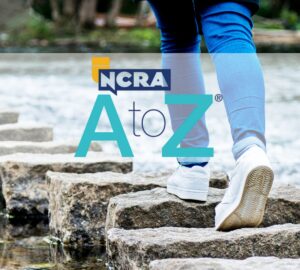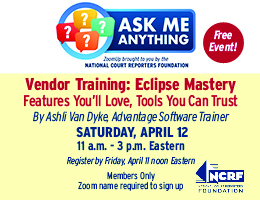By Suzanne Trimble
I use Brave for my browser and DuckDuckGo as my search engine.
Brave
I love that the Brave browser has no ads that pop up. It blocks ads, trackers, and blocking script by default, and there are no extra steps to set up these excellent privacy settings. This browser protects my end user data by keeping my online activity anonymous.
Most advertising platforms use techniques to try to identify you and track you as you move across the web. The Brave browser blocks all this, allowing you to browse freely. According to Brave’s internal testing, the Brave web browser can load major news sites up to six times faster than many other browsers because it’s not loading all the extra images, JavaScript, and tracking data. Brave is available for Windows, macOS, Linux (Debian 9+, Ubuntu 16.04+, and Mint 18+), iOS, and Android.
The con for this browser is that some websites don’t work quite right with Brave, such as NCRA skills testing with My Realtime Coach. While on these websites, the tester/user will simply need to open the browser that the specific website suggests.
Many people are concerned about the revenue that online ads create and the fact that it’s missing with Brave. If this is you, Brave has the option to participate in Brave Rewards, where you earn tokens by reviewing private ads. Brave ads analyze the user’s behavior locally, and no other parties have access to the user’s data.
Merilee Johnson, RDR, CRR, CRC, who is a member of the NCRA Technology Committee with me, also uses Brave. She shared: “Brave uses the same fundamentals as Google Chrome, meaning you can also easily sync your existing data from Chrome to Brave. One of the unique features of this platform is it is an open-source web browser, meaning it allows you to support the online creators who are dedicated to providing you a secure way to browse. Brave offers some interesting features not seen on other browsers. For example, are you new to cryptocurrency? This platform is a great introduction for those interested in getting started or just exploring crypto. Note: This is a unique feature but is not required to use this browser.”
DuckDuckGo
The main draw of DuckDuckGo is more privacy and less censorship than many other search engines. It doesn’t track web history, which keeps you safer online. It tries to protect the privacy of its users by deliberately showing all users the same search results for a specific keyword without filtering the search results and personalizing them based on the history of the user. No personal information is collected and stored about the users. There is no IP leakage, which means the user’s IP address is not shared with any websites. No search history is stored for the user. Even if the police request data about you, there is no data to be shared. DuckDuckGo does not share data about a user’s search keywords with the websites that the user visits.
Suzanne Trimble, RPR, CRR, is an official court reporter based in Sanford, Fla., and the chair of the NCRA Technology Committee. Questions about technology that you would like to have the Technology Committee to respond to can be directed to jcrfeedback@ncra.org.









